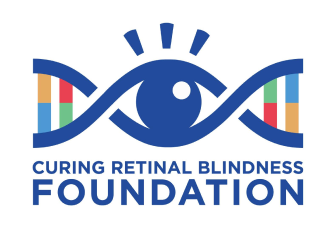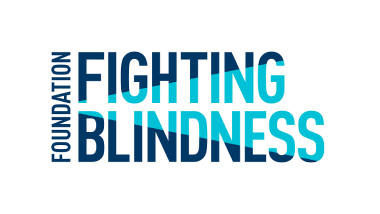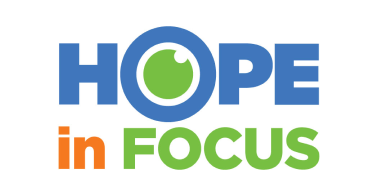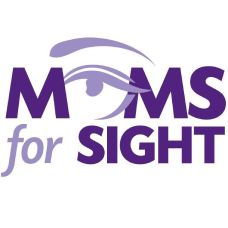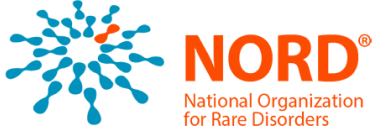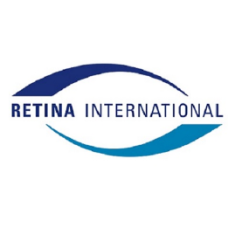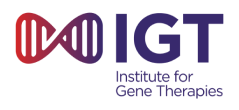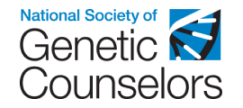Explore educational resources about inherited retinal diseases (IRDs)
IRD diagnostic journey
Dr. Dumitrescu and genetic counselor Anna Paulson discuss the challenges associated with diagnosing a patient with IRD.
Now playing 1 of 6 videos
I am Alina Dumitrescu. I am a board-certified ophthalmologist, double fellowship-trained specialist in pediatric ophthalmology, adult strabismus, and inherited eye disorders.
I’m Anna Paulson. I’m a board-certified genetic counselor at the University of Iowa and I work with patients of all different types of inherited eye conditions.
Why is it important to diagnose inherited eye disorders early?
For any condition, it’s unlikely to have a treatment if you don’t have a diagnosis, so this is the most important reason to seek an early diagnosis.
In some cases, early diagnosis and treatment of inherited eye disorders, like glaucoma or congenital cataract, can prevent vision loss.
For inherited retinal dystrophies, like gyrate atrophy for instance, a specific dietary restriction can prevent the progression of the disease.
If we know early what they have, then we may know how to treat it. It’s not easy and it’s not perfect, but it can improve their quality of life and maintain their vision.
Also, early diagnosis and genetic counseling for inherited eye disorders is essential for planning with regards to education, career, having children, and long-term care.
What are the consequences of delayed diagnoses?
In most cases, the main consequences are frustration, missed opportunities, and uncertainty for these families.
In some cases, a delayed diagnosis may mean that the family has a second child with the same condition that is perhaps more severely affected.
Or sometimes the patient may not know what they have and it’s a progressive condition, and by the time they find out, they realize they cannot practice the profession they have trained for, and they won’t be able to pay off their student loans.
So, the consequences could be quite serious.
How does early genetic testing benefit patients?
When working in a pediatric population, these families tend to be young and still on their reproductive journey; knowing exactly what’s going on with their child will help them know what options they have in terms for family planning, whether it’s in vitro fertilization with preimplantation genetic testing, a prenatal diagnosis, or being able to test after their child is born.
For patients who are thinking about having their own children, knowing their specific condition allows us to talk about carrier screening for a partner.
Genetic testing also helps us connect these families to support groups and to other families that are going through a similar journey.
Additionally, patients may also be eligible for clinical trials or a specific treatment.
Overall, knowing what’s really going on can open up a lot of different pathways for these patients and allow for better care in all aspects of their lives.
What are some early observations a specialist can ask to determine if the issue may be more than myopia?
Very common symptoms, like myopia, can have an underlying disease, but if you take the time to ask the right questions and look at the early signs, you could make a diagnosis much earlier.
You have to ask elevated questions, like “How about night blindness?” Children won’t complain of night blindness because they don’t know any better; even parents might not notice.
But if you ask them: “Would your child get lost in an unfamiliar environment? Would they not move? Would they literally be unable to see?”, then the parents are more likely to watch for that.
High myopia, more than –6 D in young children (before first grade), is not commonly in isolation; it’s associated with either a collagen disorder, a connective tissue disorder, or with some retinal dystrophies.
Myopia is important because it will show up before other signs and is what will cause the long-term visual degradation due to retinal detachments and myopic complications, more than the inherited eye disease itself.
So, family history, review of system, and asking the right questions will raise the suspicion that additional work up has to be initiated.
Although we don’t have effective treatments for many of these diseases, we can still offer patients low vision aids, help with their educational needs, and provide other types of technology-based support that will help them start this journey.
They’re not going to get any of these resources without a diagnosis.
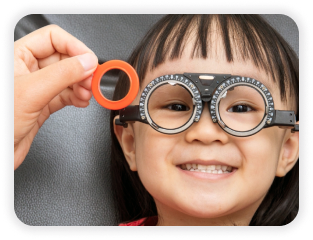
IRD diagnostic journey
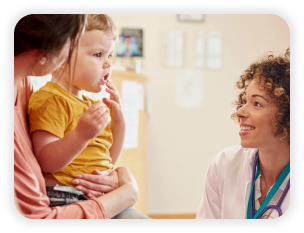
Early detection of IRDs: why and how?

Genetic testing: advances and misconceptions
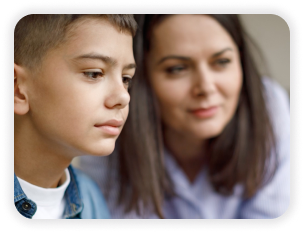
Advances in genetic therapies
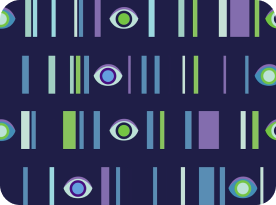
Combating barriers to genetic testing
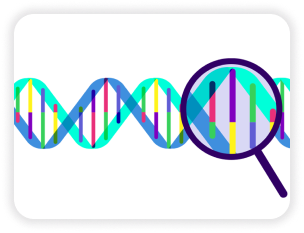
The value of genetic testing
How genetic testing gave one family the answers they needed
Allison, a proud mom of 2 children living with Leber congenital amaurosis (LCA), a subset of retinitis pigmentosa (RP), shares how genetic testing provided her family a road map for the future.
Now playing 1 of 3 videos
Meg: What’s the first word that comes to mind when I say vision loss?
Allison: Oh, good question! Umm, scary. Genetic testing gives you so much power. Finding out the exact gene that our kids had, really, it changed our lives because it gave us the key of the lock. It gave us what to expect. This is what we are fighting against. This is what we're fighting for. Hi, my name's Allison. I'm from Westminster, Colorado. I'm a wife, a nurse practitioner, and a mother of 2 kids, Logan and Zoe.
Meg: So, tell me a little bit about Logan and Zoe and some of the journey that you've been on as a family together.
Allison: My kids are amazing. Logan is 10 years old, he is in fifth grade, out in Colorado. And Zoe's 8 years old. She's in third grade. We started noticing some things about Logan’s vision. We noticed on the playground that he struggled a little bit with the slides or the steps or depth perception. We also noticed that he had some issues with light, really bright light bothered him. So, we took him to the eye doctor and they kept saying, "He's just too young. We can't figure out what's going on." And then finally, one day I said to my husband, "Okay, I'm taking him to the eye doctor and I'm going to insist that he get glasses." But it didn't quite turn out like that at the end of the appointment, the doctor wrote on a piece of paper 2 words and handed it to me, and I looked on the piece of paper and it said “retinitis pigmentosa.” I had no idea what that meant. We were told that we needed to go to a retinal specialist. So, we went to see one in Colorado. The doctor came out to see us in the waiting room and informed us that Logan did indeed have RP or LCA. We asked him where we were supposed to go and his response to us was, “There's really nothing you can do about it." At that point we felt pretty hopeless and not sure of where to go from there, but through talking to a lot of providers and just asking lots of questions we were recommended to do genetic testing. So, we tried to get genetic testing in Colorado and it was a year-long wait. And so I did not accept that. We were lucky enough to find another retinal specialist in another state that was willing to prescribe genetic testing for him and we were able to get the results within 2 or 3 months.
Meg: Let's pivot a little bit. And let's talk about Zoe.
Allison: Of course! My little girl is a very strong-willed little girl. She's the boss. She pushes everyone around. We like to say that she has leadership skills, but when she came out she was fine, her eyes were great. We had no suspicion that she had any issues whatsoever. So we were at a restaurant. She was sitting next to me and I looked at her and I noticed her eye started shaking, which is called nystagmus. And I knew right away that there was something going on. We pretty much ran home, called up the retinal specialist that we had, and told him that we started noticing these and he immediately ordered genetic testing for her. And then we got the diagnosis for Zoe and it was like, we couldn't imagine that it would knock us even lower. Then there's always that piece of guilt of, "What did I give to you?" And knowing that our gene in particular was autosomal recessive. What that means is my husband has a little variant to his DNA and I have the same exact one. I kind of look at it as spelling mistake. So he has one spelling mistake and I have the same exact spelling mistake, and there's a 25% chance that then we would both pass that same spelling mistake onto our children. And unfortunately, both of them ended up having the same genetic issue. Now both of my kids are going to be afflicted with this disease. Both of my kids are going to go blind by their teens to 20s. It was one of the hardest things I've ever had to deal with.
Meg: So how did you come out of that place?
Allison: You know you go through all the stages of grief, the denial piece, the depression piece, the sad piece. But I'm not a person that just sits back and accepts it. So I started researching, I started doing everything I could to try to figure out what was going on. I knew that I had to take that sadness and make it into a positive because these are your kids, you know, mama bear, you do everything you can for your kids. You don't accept just sitting back and letting it happen.
Meg: Can you tell me a little bit more about the power behind genetic testing?
Allison: Genetic testing has provided us a roadmap for the future for our children. It lets us know that they're going to lose vision slowly over time and we need to prepare for that. So we teach him braille, we're teaching him cane training, same with Zoe. And it gives us peace of mind to plan for the future and get them set up with all the tools that they need to succeed. They go to school just like every other kid does, they do their chores just like every other kid does. They can play any sport that they want to, we just need to make some tweaks to it so that it's accessible for them. We like to say, it's not a disability, it's a different ability. About 2 months ago, she said, “Mom, I want to be an artist, but how can I do that if I'm blind?” We went online and we found all of these blind artists. And it was just amazing what they could do, and I think that she felt a little better about it at that moment of, oh, I still can do this, but I just need to do it a little differently. Logan loves to run, so we created a tether that I tie my wrist to Logan's wrist and myself or my husband, Mike, will take him out for a run and we'd run the trail with the cross-country team. He even competed in a junior national competition out in Colorado, and couldn't have been more proud of himself. Genetic testing is critical. Without it, we would have no idea what our kids have. We wouldn't know the next steps we needed to take. We wouldn't know how to plan for the future. What we have found being that we're such a rare disease, the more people we find that have the same gene as us, the better chance we have of getting a clinical trial done or having studies done on us because it makes us that much less rare. When Logan was diagnosed, there were only about 15 genes to LCA. And now, we're at about 25, and who knows in the future how many more we'll find.
Meg: If there's one thing you could leave people with, in terms of the importance of genetic testing, what would that one thing be in your words?
Allison: Genetic testing afforded us so many answers. It’s like the missing puzzle piece. We knew the disease. We knew what was going on, the mechanism behind it. Get genetic testing. Ask tons of questions like, “How do I prepare for the future?” or “How can I fight?”, “What can I do to help fight to find a cure to get scientists to listen to us?” So get genetic testing! Do it. Get it done.
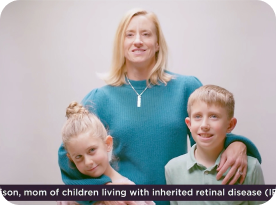
How genetic testing gave one family the answers they needed
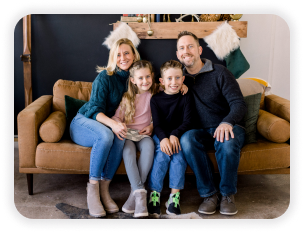
Meet the Galloway family
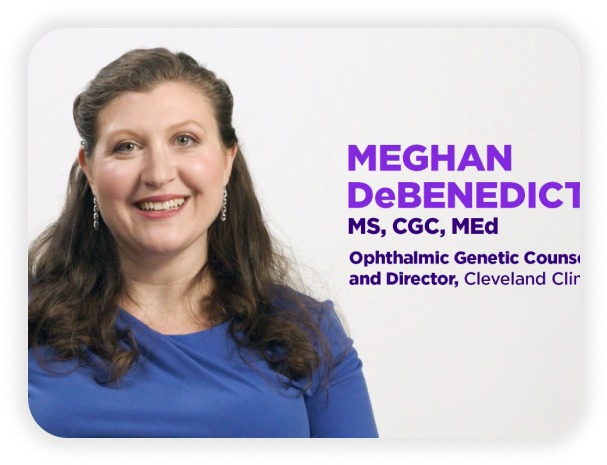
Genetic testing 101
Compelling case studiesClick on the case studies below to help identify appropriate patients in your practice who may benefit from genetic testing.
Genetic retesting offers answers
Genetic retesting helped establish a diagnosis for a symptomatic patient with inconclusive results.2
Family testing detects genetic mutation
A young brother whose older sibling was diagnosed with IRD underwent genetic testing, and the same mutation was detected.2
Overlapping gene variants
Genetic testing helped confirm a more precise diagnosis in a patient who presented with nonspecific signs and symptoms.2
Your patients are not aloneEmpower them to connect and build their support network
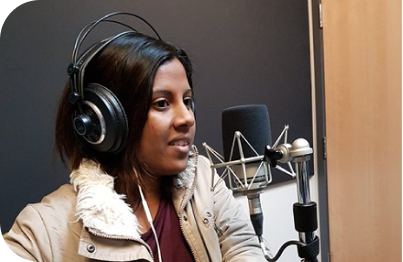
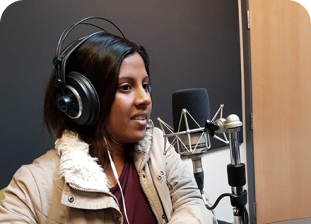
Having an IRD diagnosis means you can connect with other people in the community and around the country.
– Ramya, living with an IRD
IRD community resourcesGet connected with eye specialists and genetic counselors and learn more by exploring the organizations below.
Stay informed with the latest news
Keep your patients engaged and informed. Share the facts about emerging inherited retinal disease gene therapy.
Looking for a clinical trial?
Over 40 clinical trials are either completed or underway for different types of inherited retinal diseases.1




